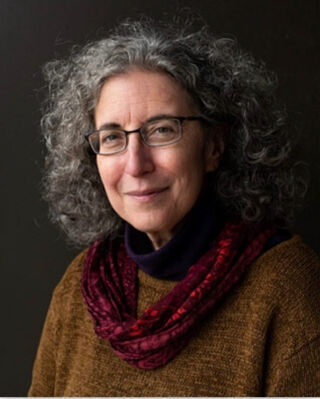Trauma
After Rape: A Welcomed Return to Self
Author Michelle Bowdler on the "before" and "after" of rape.
Posted November 6, 2020 Reviewed by Lybi Ma
This post was written by a guest contributor, Michelle Bowdler, the author of Is Rape a Crime? A Memoir, an Investigation, and a Manifesto.

Rape victims often talk about a “before and after” understanding of self, and that concept resonates with my own experience of trauma. In the aftermath of a home invasion by two men where I was almost killed, I could no longer function as I once had, and every dream I imagined my future might hold “before” got stored away in a metaphorical box, fully wrapped in duct tape, and placed out of reach in the deepest corner of a dark closet.
I couldn’t face who I used to be—bold, brash, and full of hope about the future. My new self needed every bit of my energy to survive each day, moving through bit by bit, moment by moment. Each step had to be taken intentionally, as I worked to stay balanced and breathing, focusing only on the next small instant, then the next, and the next still—onward through each day.
I hoped at some point these small bits would string together enough time and healing so that I might find a way to live with a modicum of peace. Put another way, I wanted to live simply without a heart that beat like hummingbirds’ wings and to ease my brain’s constant anticipation of danger that could arrive with no warning, its randomness central to its ability to terrorize. The metaphorical box that contained who I once was, along with all my former aspirations, went completely missing as I started a brand-new life. That young, confident girl who thought she could change the world had disappeared.
One need not deny the presence of grief that sits alongside traumatic experiences. Allowing the honesty of that emotion does not, in any way, minimize the life built “after” and the loved ones who inhabit it. Feeling what we feel is simply a gift we can give to ourselves, to face what was lost in surviving an event that remains unfathomable even to the person who has lived through it.
Mourning the life I might have lived is something I am now reckoning with in a way I haven’t felt for years. The publication of my debut book about rape and its aftermath awakened in me a hunger to find that young girl across space and time and reacquaint myself with her. She wanted to be a writer. She had so many plans.
My middle and high school years were spent in a rural town in northeast Ohio. I graduated as valedictorian and "Most Likely to Succeed" and chose a college near Boston, eager to get away from a town where I felt like I didn’t fit in. I had goals many of my friends did not or could not share because of poverty or family responsibilities that held them tethered to the town their family had lived in for generations. I was a transplant from Chicago and couldn’t wait to leave and begin my adult life, whatever that meant to me as a 17-year-old.
Within the first few days of my arrival, I discovered I was still out of place. My newfound friends had traveled widely, tasted foods I had never heard of and cited a myriad of favorite authors I pretended to have read to hide my shame of never having heard of any of them. I quickly came to understand that my high school education had been sorely lacking, and I knew a lot less than I thought and wondered how I’d ever catch up before anyone noticed.
Within a semester, I changed my major from Economics to English and American Literature. These courses required us to read at least a book a week, so I made my way over time through Melville, Chaucer, Yeats, Woolf, Stein, Dickens, McCullers, and dozens more. I also took as many writing classes as I could and hoped to eventually have a career in editing and publishing, while I saved money for graduate school to hone my skills.
Learning critical thinking through reading and creative expression through writing made me happier than I’d ever remembered being. The college experience overall also helped guide my growing values as I developed a commitment to social justice and feminism. I also came out before my first year ended, a welcome surprise. Reading, in the most basic way, helped me finally feel less alone, and writing activated the link between my brain and heart. I had found my way, my dreams clear, my confidence bursting.
I loved that young girl who became more of who she wanted to be in college. She was feisty and thought she owned the world. And after four years of honing her own identity and developing some very cool life plans, she welcomed the future with a hunger for all the challenges and options it offered.
Until it didn’t.
Until two men chose her first-floor window to climb through.
Two years after I graduated from college, and 10 months into a job as an associate editor for a national magazine, I was attacked in my home. I couldn’t function and quit soon after. And I didn’t look back for over two decades as I built a brand-new life.
In my 40s, I started writing again—stories about my childhood, at first, just to get used to the feeling of once again putting words on the page. I kept up with an evening writing practice, and the stories grew a little more, exploring the concept of building resilience and surviving challenges that once seemed insurmountable. Slowly, I began to include my experience of trauma and its impact.
A friend of mine suggested I apply for a year-long competitive class in memoir writing at Grub Street, a well-known writers’ collective in Boston. I followed her instruction, not expecting much but knowing I’d be proud of myself just for the effort. My memoir draft passed through a selection committee, and I got in.
I had forgotten some of the bones of good writing—character-narrator separation, developing a story arc, or the various elements of world-building. The instructor was kind and gentle with feedback, and so I relearned the craft. I wrote and rewrote and read classmates’ pieces, which massaged my long-dormant editing skills. And as the weeks and months went by, something happened. That dusty, old box in a far corner of my brain started to vibrate, then shake, and then a voice emerged.
“I’m in here,” a young girl with big hair and big plans shouted. She had been waiting for a very long time and came forward and joined hands with me. “You can do this,” she said. “It is not too late to return to your dreams, and all of the time you took helped create the exact story you need to tell.” That young, confident girl who thought she could change the world had returned, and I welcomed her with tears of joy and disbelief.
It feels so wonderful to have her back, as well as the passion for writing I had discarded in order to just focus on surviving. The book I had started became a different book—one about the impact of sexual violence, and how it is exacerbated by the ways in which law enforcement, our judicial system, and society at large minimize sex crimes. My journey and the way in which trauma had changed my life no longer caused me embarrassment. It existed outside of my internal experience of it and could be shared.
I published my book in late July of this year. There have been so many unexpected moments that go with this huge and surprising life event, including hearing from readers about their own experiences with trauma and loss of self. As I go through this journey, I have the support of my family, friends, work colleagues, and publishing team. And by my side, now, through it all, is a bold and brash big-haired girl who assures me she was actually with me all along, just waiting to be noticed, waiting until I had become the champion for myself I needed all along
And she isn’t going anywhere.
Michelle Bowdler is the author of Is Rape a Crime? A Memoir, an Investigation, and a Manifesto. She is the Executive Director of Health & Wellness at Tufts University and, after graduating from the Harvard School of Public Health, has worked on social justice issues related to rape for over a decade. She is a recipient of a 2017 Barbara Deming Memorial Award and has been a Fellow at both Ragdale and MacDowell. Michelle’s writing has been published in the New York Times, literary magazines, and her essays “Eventually You Tell Your Kids” and “Babelogue” were nominated for Pushcart Prizes.




